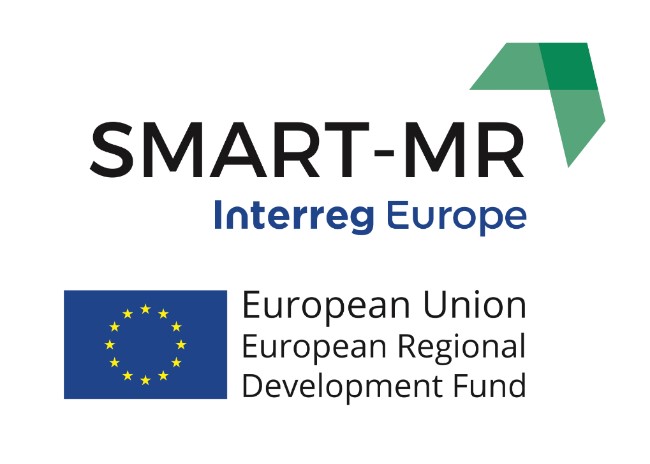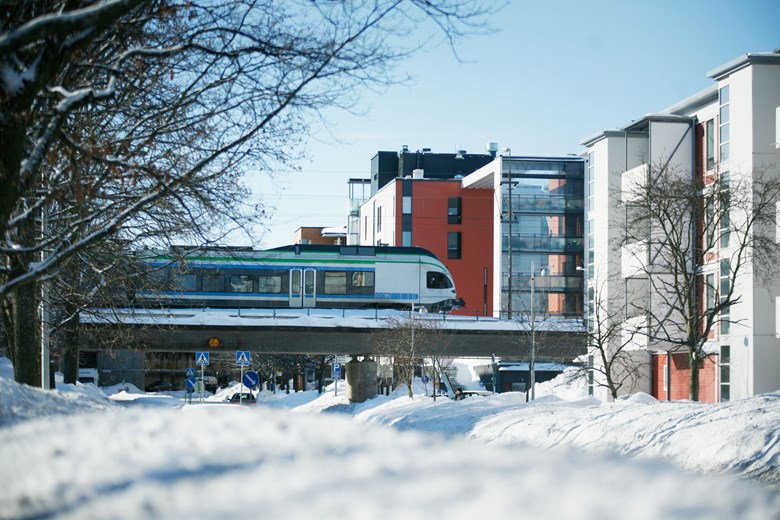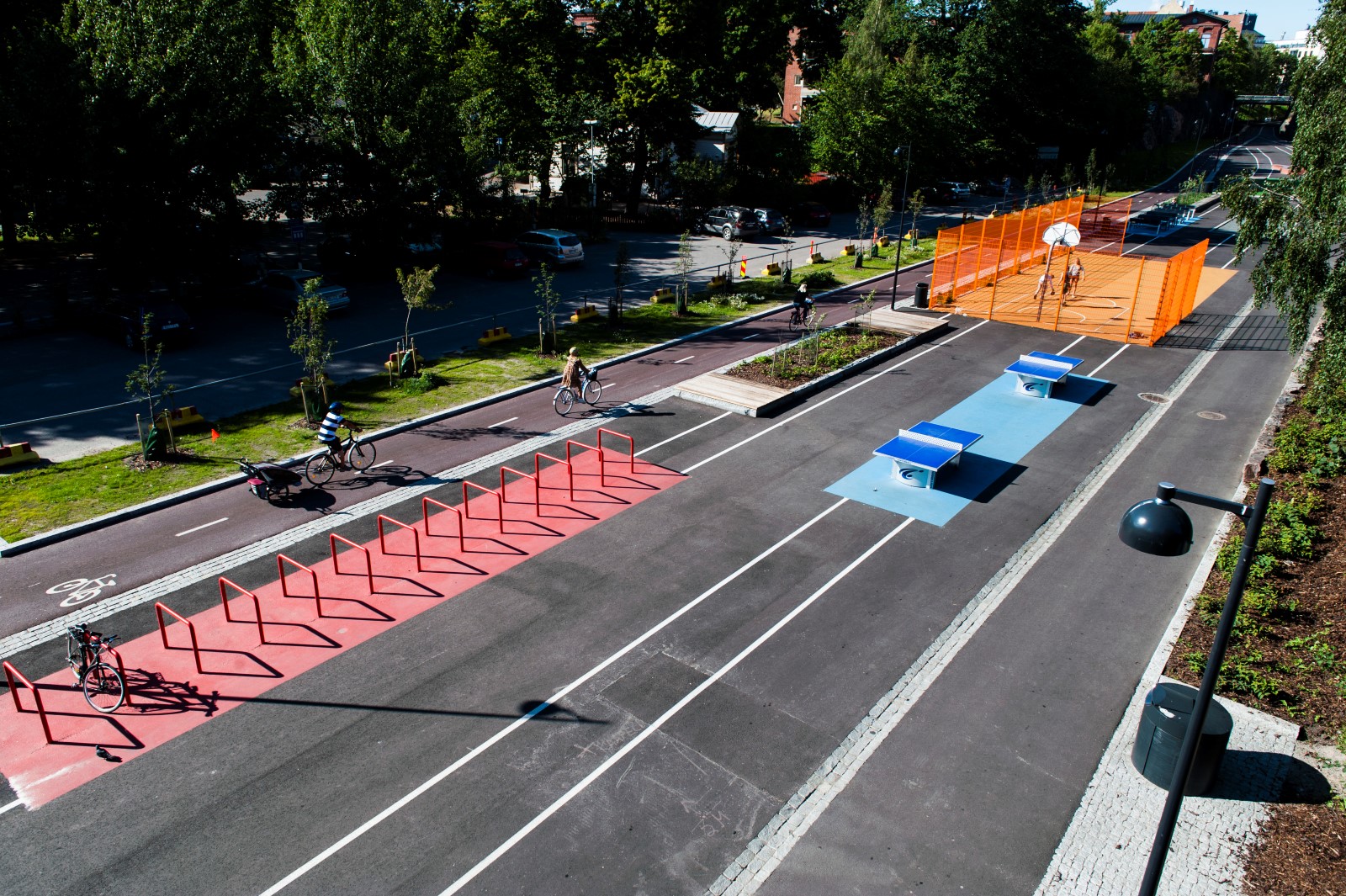
SMART-MR project

More sustainable mobility for metropolitan regions
HSY and the Helsinki region are participating in the SMART-MR (Sustainable Measures for Achieving Resilient Transportation in Metropolitan Regions) project, which aims to improve transport policy and develop ways to promote sustainable, low-carbon mobility in metropolitan regions.
The project seeks to address the problems caused by traffic in metropolitan regions, such as congestion and greenhouse gas emissions, to provide a healthier urban environment and to support the business environment. By identifying more sustainable mobility solutions, the project focuses on four sub-objectives:
- providing methods and tools for a participatory transport planning;
- translating urban mobility plans to the metropolitan region level;
- developing solutions for low-carbon station areas as intermodal nodes and areas of low-carbon freight and services; and
- supporting sharing economy and innovative transport management for new sustainable modes of people’s mobility.
Development of low-carbon station areas
The theme of the Helsinki region is the development of low-carbon station areas (‘Shaping Low Carbon Areas’). The work is coordinated by HSY and the cooperation network includes the Finnish Transport Agency, the Ministry of the Environment, HSL, the Helsinki-Uusimaa Regional Council, the cities in the Helsinki metropolitan area, the LHT Network and other station area operators. The work supports and continues the objectives of the ELIAS – Dynamic Station Areas project by developing low-carbon planning and development principles for station areas.
PROJECT RESULTS
The project partners shared their experiences on themes in line with the sub-objectives in seven separate workshops. Each workshop involved issuing a regional analysis of the theme, sharing good practices and organising study visits. Recommendations and development principles were developed in the cooperation for each theme. The project resulted in a guide on sustainable measures that promote flexible and low-carbon mobility in metropolitan regions. Best practices and recommendations for action from the workshop themes have been compiled in the guide.
Transforming European Metropolitan Regions guide,
Low Carbon District planning tool introduces concrete measures to the development of station areas

Low Carbon District website,
As part of the development work, the Low Carbon District concept for station areas was developed in cooperation with cities and key operators. The concept provides planners and station project implementers with a tool for developing a sustainable and low-carbon station area. The planning tool brings together perspectives on climate change mitigation, adaptation, circular economy, as well as social sustainability and health.
The Low Carbon District planning tool and action cards can be utilised on the tool’s own website.
Themed workshops and their results
The project was launched with a status report on transport planning, legislation and implementation in each metropolitan region. A status report of the metropolitan regions has been prepared for each themed workshop, including examples of good and bad practices.
Read the status report of European metropolitan regions,
Participatory Transport Planning
Workshop 1, Ljubljana 2016
Creating a Sustainable Mobility Plan
Workshop 2, Sustainable Mobility Plan, Rome 2017
Low Carbon Logistic Planning
Workshop 3, Oslo 2017
Transit Oriented Development
Workshop 4, Transit Oriented Development, Gothenburg 2017
Shaping Low Carbon Areas
Workshop 5, Helsinki 2018
Managing Transportation
Workshop 6, Budapest 2018
Sharing Economy
Workshop 7, Porto 2018
Project partners
The project involves eight European metropolitan regions. The participating project partners are:
- Regional Development Agency of the Ljubljana Urban Region, Slovenia
- Scientific Research Centre of the Slovenian Academy of Sciences and Arts, Slovenia
- City of Oslo, Agency of Urban Environment, Norway
- Akershus County Council, Norway
- Gothenburg Region Association of Local Authorities, Sweden
- Helsinki Region Environmental Services Authority municipal federation
- BKK Centre for Budapest Transport, Hungary
- Metropolitan City of Capital Rome, Italy
- Porto Metropolitan Area, Portugal
- Barcelona Metropolitan Area, Spain
The project is coordinated by the Scientific Research Centre of the Slovenian Academy of Sciences and Arts.
The SMART-MR project receives funding from the Interreg Europe programme. The project will run from 1 April 2016 to 31 March 2021.